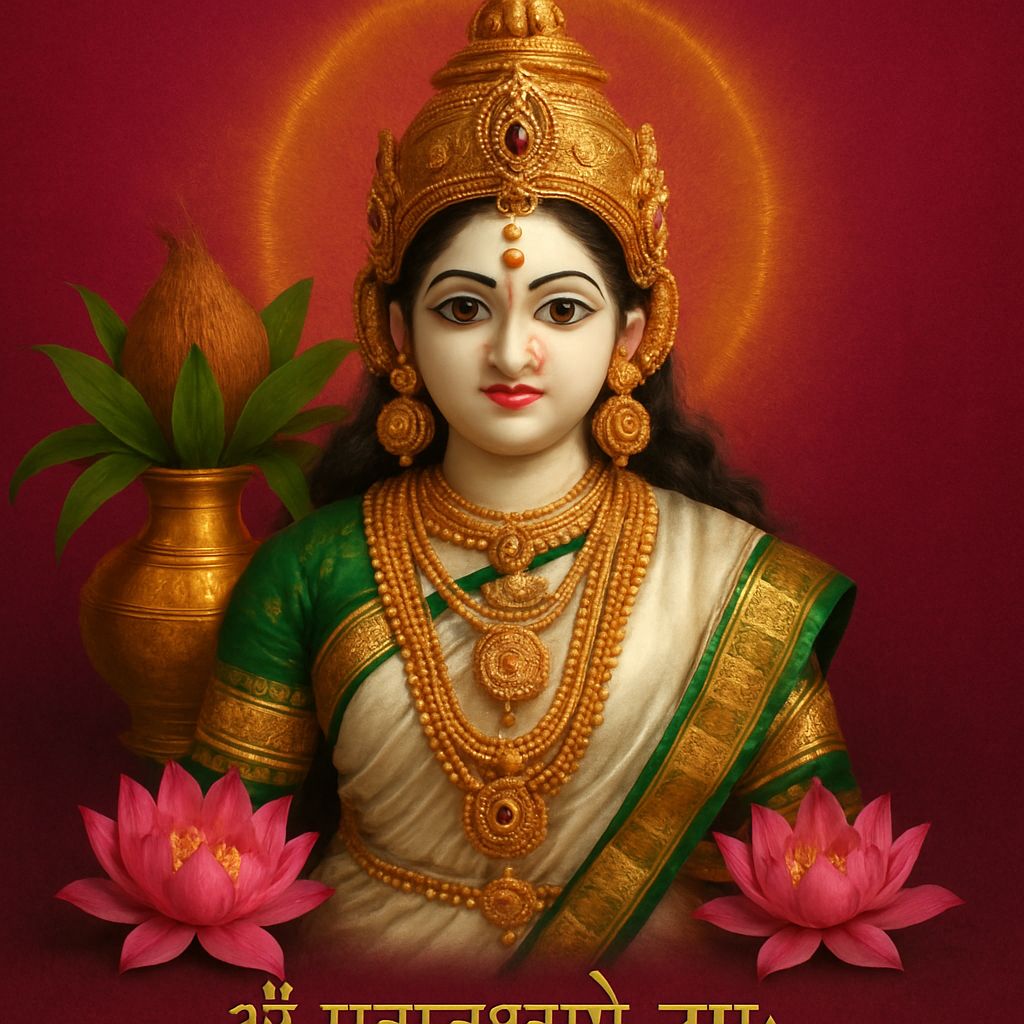
About the Author
Raja Ratnam is a passionate researcher and writer specializing in Indian mythology and epic stories.
With years of experience studying texts like Ramayana, Mahabharata, Varalakshmi Vratam and other cultural scriptures,
he brings insightful interpretations and practical lessons from these timeless stories.
Raja Ratnam believes in making mythology accessible and meaningful for modern readers,
helping them understand the moral, ethical, and cultural significance behind characters like
Ramudu, Laxman, Shani Deva, and many more.
Connect with the author: info@ratnamstrategy.com
Date: Friday, August 8, 2025
Occasion: Friday before Shravan Purnima
Festival Significance: A sacred day to worship Goddess Varalakshmi – the bestower of wealth, health, and prosperity.
What is Varalakshmi Vratam?
Varalakshmi Vratam is a powerful and auspicious festival observed primarily by married Hindu women. It is dedicated to Goddess Varalakshmi, a form of Lakshmi Devi, the goddess of prosperity and auspiciousness. On this sacred day, women pray for the well-being of their families, long life of their husbands, and overall abundance in their homes.
The Ashta Lakshmis are considered divine forms of Lakshmi, and this vrat invokes their blessings.
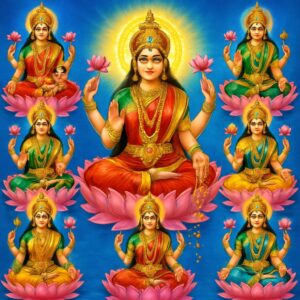
Dhana (Wealth)
Dhanya (Grain & Food)
Veera (Courage)
Vijaya (Victory)
Santana (Progeny)
Gaja (Strength)
Arogya (Health)
Vidya (Knowledge)
Varalakshmi Vratam 2025: Important Details
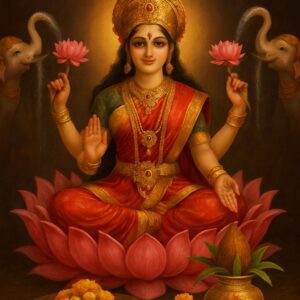
Festival Date: Friday, 8 August 2025
Tithi: Friday before Shravan Pournami
Highly Auspicious For: Performing Lakshmi Puja and seeking divine blessings
How to Perform Varalakshmi Vratam – Step-by-Step Puja Procedure
Pre-Puja Preparation
Clean the house thoroughly.
Decorate the puja area with mango leaves, flowers, and rangoli.
Prepare the kalash to represent the goddess.
Kalash Sthapana (Pot Installation)
Use a silver or brass pot filled with water or rice.
Place five mango leaves in the pot.
Top it with a turmeric-smeared coconut.
Adorn the pot with saree, face mask, and jewelry to symbolize Goddess Lakshmi.
Puja Rituals
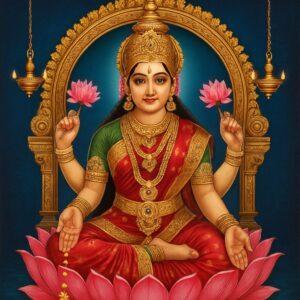
Wake up early, bathe, and wear traditional attire.
Perform sankalpam (spiritual intention).
Offer turmeric, kumkum, fruits, betel leaves, and naivedyam (pongal, payasam, etc.).
Chant Lakshmi Ashtottaram, Sri Suktham, or Lakshmi Sahasranamam.
Perform aarti with camphor and distribute prasad.
Sacred Thread (Toram)
Tie the toram (sacred thread) on the right wrist as a symbol of protection and blessings.
Evening Traditions
Invite sumangalis (married women) for haldi-kumkum.
Offer them bangles, flowers, tamboolam, and sweets.
Seek elders’ blessings.
Varalakshmi Vrat Katha (Sacred Story)
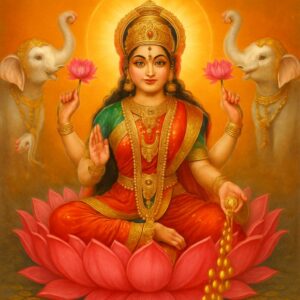
According to Skanda Purana, Lord Shiva explained the importance of this vrat to Parvati Devi.
In ancient times, in the city of Kundina, lived a virtuous woman named Charumathi. Known for her devotion, she served her family with love and humility. One night, Goddess Varalakshmi appeared in her dream and instructed her to perform the vrat on a Friday before Shravan Purnima.
Charumathi shared the dream with her family, and they supported her wholeheartedly. On the sacred day, she set up the puja mandapam, installed the kalash, invited other women, and performed the vrat with deep devotion.
Divine Grace and Miracles
During the first pradakshina, her anklets began to jingle on their own.
On the second, golden bangles adorned her hands.
With the third pradakshina, all the women were blessed with divine ornaments and prosperity.
From then on, women across the town started observing this vrat and were blessed with health, happiness, and wealth. The vrat thus became a tradition passed on from generation to generation.
Regional Practices
Tamil Nadu
Known as Varalakshmi Nombu
Elaborate kalash decoration with sarees and jewelry.
Andhra Pradesh & Telangana
Group chanting of Sri Suktham and Lakshmi Sahasranamam
Observing fast until puja concludes
Karnataka
Worship of Goddess Gauri and Lakshmi
Recitation of vrat katha among family members.
Maharashtra & Gujarat
Popular among South Indian communities.
It is a tradition to prepare special sweets like modak, kozhukattai, and sheera.
Traditional Naivedyam Offeringshttps://everlearnhub.com/
Sweet Pongal
Payasam (kheer)
Coconut rice
Tamarind rice
Modak, Laddu, Banana
Fruits and Dry Fruits.
Spiritual and Family Benefits
Attracts wealth and prosperity
Ensures health and long life for loved ones
Removes financial and mental obstacles
Strengthens family unity and peace
Grants divine blessings from Ashta Lakshmi.
Final Thoughts
Varalakshmi Vratam is not just a ritual – it’s a sacred journey of faith, devotion, and tradition. With a pure heart and peaceful mind, this vrat brings abundance, harmony, and spiritual upliftment to your life.
During Varalakshmi Vratam, it is common to offer gold coins or their representations (such as wooden coins, kumkum-stamped coins, or watermelon seeds shaped like coins) to Goddess Lakshmi as part of the decoration or naivedyam (offering). However, this is not mandatory. The offering of gold coins is mostly symbolic and traditional.
Why are gold coins offered?
- Goddess Lakshmi is the deity of wealth, so decorating Her with valuable items like gold and coins is believed to be a sign of invoking prosperity.
- Offering gold coins is considered to bring financial stability and blessings.
- In some families, it is customary to add one coin every year as a symbol of their vow or as a marker of how many years the vratam has been performed. Where are the coins placed?
- The coins are typically placed at the feet of the Goddess or on the puja platform, often among silk cloths or garlands.
- Some people use tulasi (holy basil) garlands, Lakshmi-stamped coins, or replica coins for the same. Is this scripturally required?
The use of gold coins is not mentioned in the original Vratam scriptural procedures, but it has become a traditional practice passed down in many households. Each family’s customs and traditions may vary.
Whether or not to offer gold coins is entirely up to your devotion and family tradition. Even a small coin placed on a clean cloth with turmeric and kumkum is considered auspicious and acceptable.
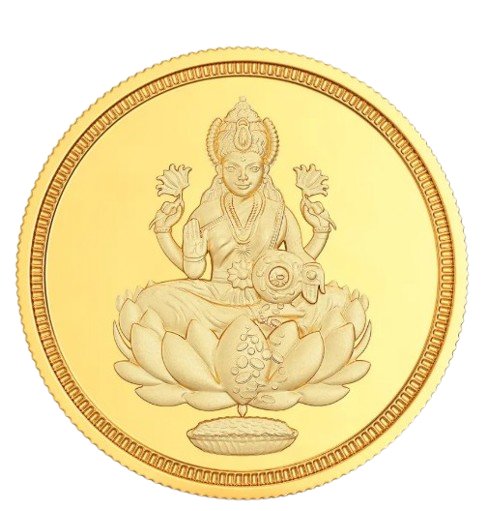
Joyalukkas 2022A_1gm 22 K 1 g Gold Coin
₹10,199
Goddess Lakshmi is more interested in sincerity, discipline, and devotion than she is in her grandeur.
May Varalakshmi Devi bless your home with everlasting joy, health, and prosperity.
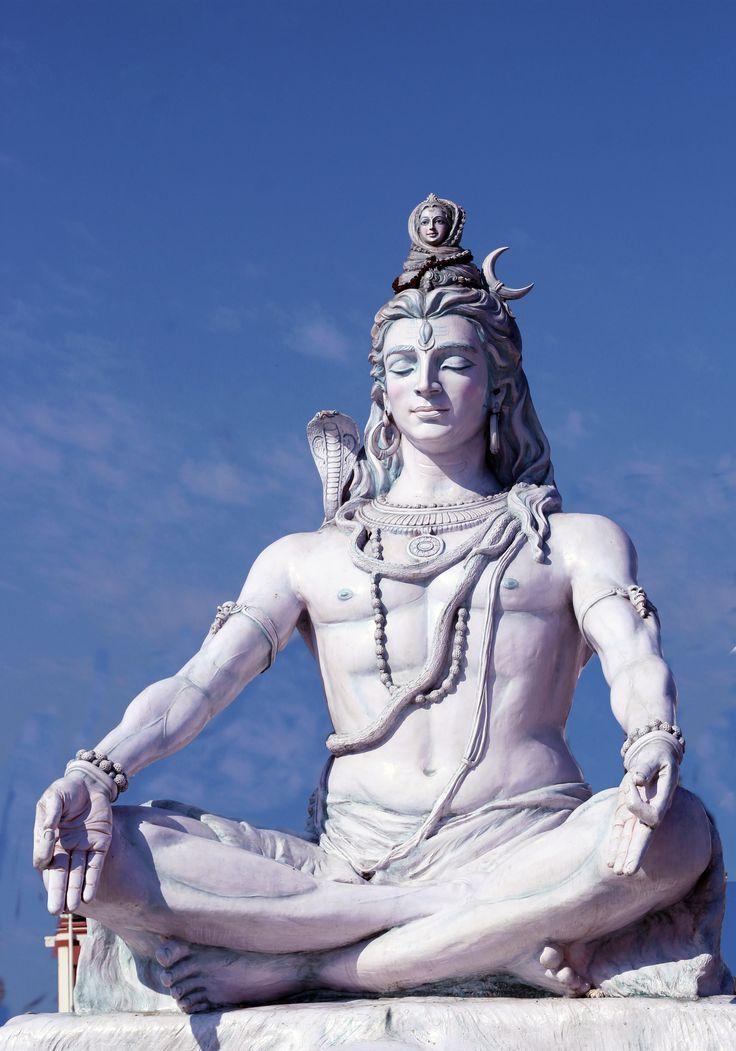
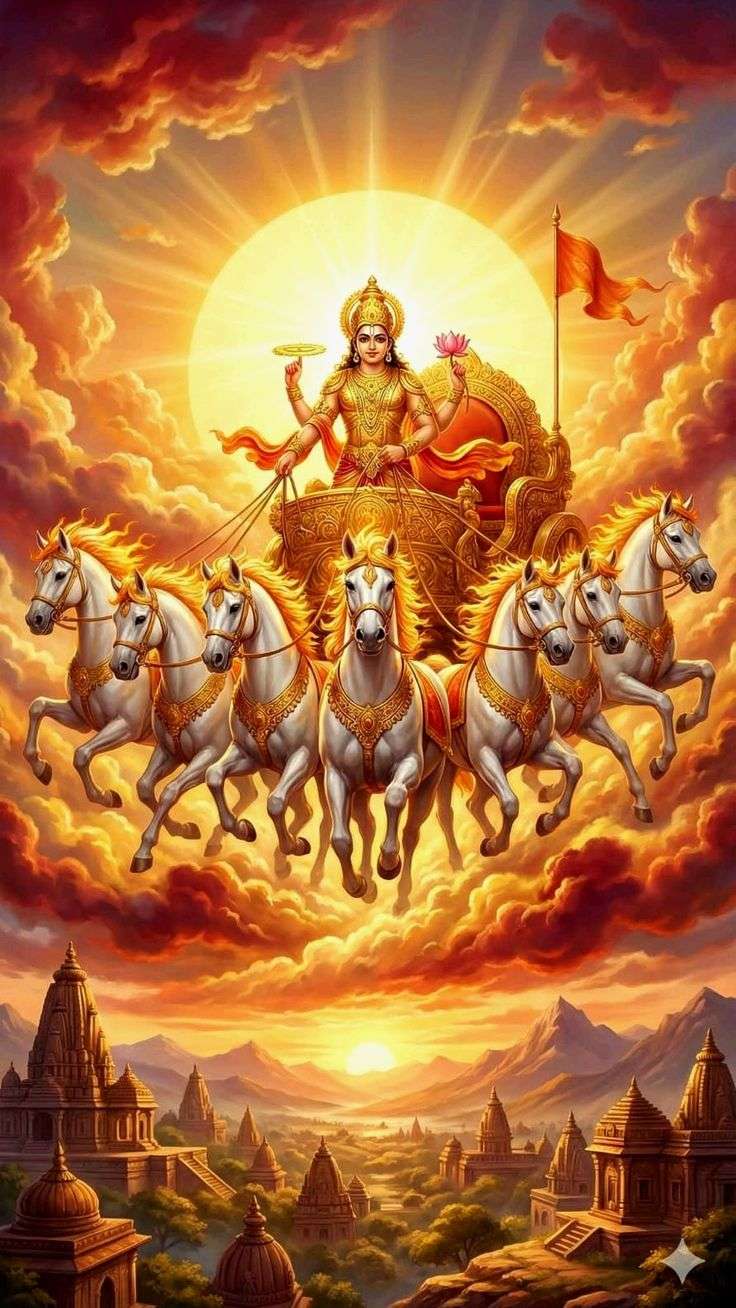





Lakshmi Devi 🙏
Thank you
మీ ఇంట వరలక్ష్మీ వ్రతం ఫలవంతమై..
లక్ష్మిదేవి అనుగ్రహం, అష్టైశ్వర్యాలు లభించాలని కోరుకుంటూ..
– అందరికీ వరలక్ష్మీ వ్రతం శుభాకాంక్షలు
పవిత్ర శ్రావణ మాసంలో..
వరలక్ష్మీ వ్రతం జరుపుకుంటున్న..
మహిళలు, వారి కుటుంబ సభ్యులకు..
ఆ లక్ష్మీ దేవి కృప కలగాలని ఆశిస్తూ..
అందరికీ వరలక్ష్మీ వ్రత శుభాకాంక్షలు
hare Ram